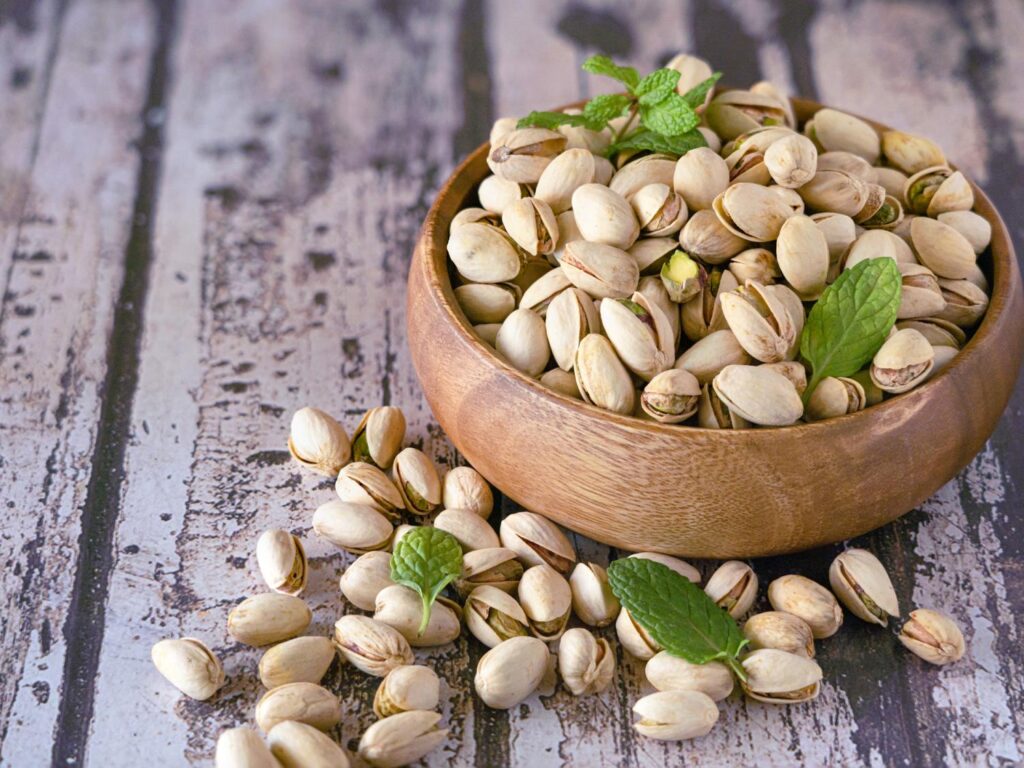
Prediabetes affects nearly one in three Americans, with most at risk of developing Type 2 diabetes if no lifestyle changes are made. While dietary strategies often emphasize cutting calories or sugar, new research from Penn State highlights a different approach, focusing on gut health through diet.
The study suggests that pistachios might help reshape the gut microbiome in adults with prediabetes. These changes in gut bacteria could support better blood sugar control and reduce inflammation, two key factors in preventing diabetes. The concept is straightforward: what you eat, particularly before bed, can significantly influence the bacteria in your digestive system, which in turn can impact your overall health.
Replacing Carbs with Pistachios at Night
Many healthcare providers recommend a small nighttime snack for people with prediabetes, typically 15 to 30 grams of carbohydrates, such as a slice or two of whole grain bread. The goal is to prevent low blood sugar overnight and stabilize it in the morning. But what happens when you replace that snack with pistachios?
In a recent study, 51 adults with prediabetes tried two bedtime snack options: pistachios or a standard carbohydrate-based snack. Each snack period lasted 12 weeks, with participants switching midway. The study ensured that effects from the first phase did not carry over to the second by including a break between treatments.
Researchers collected stool samples throughout the study and used 16S rRNA gene sequencing to identify the bacteria present. This method focuses on the genetic material of bacteria, allowing scientists to determine which types are more or less active in the gut.
More Good Bacteria, Less of the Bad
When participants consumed about two ounces of pistachios before bed, their gut bacteria underwent notable changes. Some beneficial bacteria became more prevalent, including Roseburia and bacteria from the Lachnospiraceae family. These microbes are known to produce butyrate, a short-chain fatty acid with powerful effects.
“Pistachios seem to be able to meaningfully shift the gut microbial landscape in adults with prediabetes, especially when consumed as a nighttime snack,” said Kristina Petersen, associate professor of nutritional sciences at Penn State and senior author of the study.
Butyrate not only fuels gut cells but also helps maintain a strong gut lining and supports anti-inflammatory functions throughout the body. According to Petersen, these microbial changes could slow the onset of Type 2 diabetes or help reduce inflammation contributing to other diseases.
Less Harmful Bacteria After Pistachio Snacks
The benefits of pistachio snacks extend beyond the increase in healthy microbes. The study found that pistachio consumption also reduced levels of certain bacteria linked to negative health effects. For instance, Blautia hydrogenotrophica, which can produce compounds that may accumulate in the blood and damage the heart or kidneys, was reduced.
Another bacterium, Eubacterium flavonifractor, which breaks down antioxidants from foods like pistachios, also decreased. Lower levels of these microbes might help preserve beneficial nutrients and reduce risk factors associated with chronic disease.
These changes are significant because the gut microbiome acts like an internal control panel. Some bacteria help absorb nutrients and keep inflammation low, while others may work against you. Shifting the balance toward helpful microbes could be one of the simplest ways to protect long-term health, especially when early signs of metabolic disease appear.
A Strong Study Design Adds Power
Petersen highlighted that the study’s design adds confidence to the results. Because the study was randomized and used a crossover model, every participant tried both snack types, allowing for a direct comparison of effects and ruling out individual differences.
Unlike many nutrition studies that rely on short-term measurements, this one spanned over 12-week periods, providing researchers with ample time to observe real changes in gut bacteria. The analysis revealed that the microbiome didn’t just shift slightly; it took on a different structure depending on the type of bedtime snack.
However, Petersen noted that there’s more to learn. While the study clearly showed changes in gut bacteria, it didn’t measure long-term outcomes like blood sugar levels or insulin resistance. “It remains unclear whether these changes directly translate to improvements in health,” she said, indicating that future research is needed to connect microbiome shifts with real-world health effects.
What This Means for Your Health
Although more studies are needed, this research opens the door to new thinking about diet and diabetes prevention. Instead of just cutting carbs or counting calories, it might be more effective to focus on feeding the right microbes. Pistachios, rich in fiber, protein, and healthy fats, could be a part of that strategy.
They are not just a source of nutrition but also a tool to shape your gut environment. If you’re at risk for Type 2 diabetes or trying to manage blood sugar, swapping a slice of bread for a handful of pistachios before bed might support both your digestive system and your metabolism.
In the end, small changes may add up to significant benefits. Your gut bacteria are always responding to what you eat. With smart food choices, you might be able to guide them toward supporting better health from the inside out.
The research findings are available online in the journal Current Developments in Nutrition.






